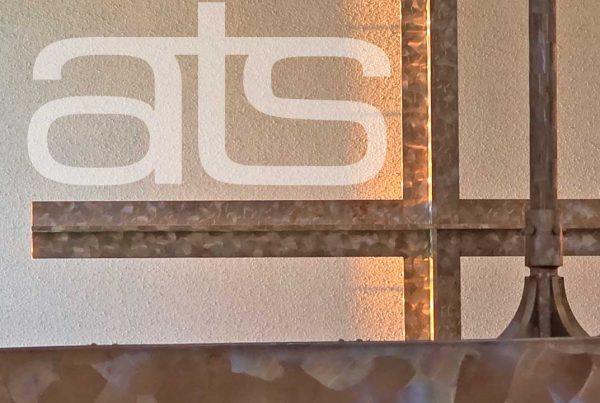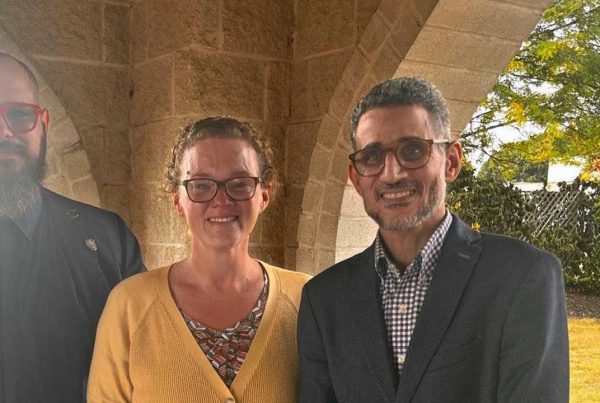Challenged by realities of poverty, buoyed by hope
As we conclude another programming year at the CTS Faith & Action Project, we find ourselves challenged by the persistence of poverty and, at the same time, buoyed by the passion and dedication of those working to end it.
Over the past 12 months, we have continued the journey to a deeper understanding of poverty by engaging the community in conversations about the root causes of poverty and its personal, social and structural impact. To that end, we sought to expose the ways implicit and explicit racial and class-related biases distort community life and economic opportunity, and to embrace research showing that lasting change will come only from holistic solutions that address root causes and systems that perpetuate poverty.
With a programming year that aligns with the academic calendar, our year started with the awarding of $105,000 in Faith & Action Grants to five organizations focused on addressing the factors contributing to poverty, from quality education and work readiness to the need for equitable housing and mental health services. The organizations receiving grants were Elevate Indianapolis, Heart Change, Greater Indianapolis Multifaith Alliance, Indiana Youth Group and West Morris Church.
In the months that followed, we gave a forum to speakers who shared data and stories to highlight the ways that racism and inaccurate narratives block people from moving out of poverty. Speakers challenged attendees to consider their roles in dismantling systemic barriers to advance justice, equity and opportunity and to assess the ways individuals and faith communities can remove systemic barriers.
Our 2023 Fall Event brought author Heather McGhee to Indianapolis to share perspectives built from her work on her book The Sum of Us. “Our collective economic progress is held back by a lie,” McGhee said. That lie of the “zero-sum game” tells us that one person’s or group’s progress comes at the expense of another’s. The result of this prevailing narrative? Many whites believe that progress for non-whites will come at whites’ expense. McGhee pointed out that the contrary is true: As Blacks are held back, whites suffer as well, as economists calculate that Black-white economic divide has cost the U.S. GDP (Gross Domestic Product) $16 trillion over the last 20 years.
The remedy? Solidarity dividends. “Solidarity means no one fights alone, it means your fight is mine, an injury to one is an injury to all,” McGhee said. To illustrate the point, she described a situation in Memphis, Tenn., in which poor black families and white environmentalists joined forces to stop an oil pipeline planned for a poor black neighborhood.
A few months later, the CTS Faith & Action Spring Conference empowered attendees to address inaccurate narratives, serve as allies for justice and step out of their comfort zones for the good of all.
A pre-conference conversation explored the impacts of racism and affordable housing today, leading with the fact that only 41% of Black people in Indianapolis own their homes, compared to 71% of white people—a rate virtually unchanged over six decades. Renters struggle as well, attendees learned, as nearly half of renters in the Indianapolis, Carmel and Anderson areas put one-third to one-half of their income toward rent.
The Spring Conference opened with a continuation of sobering statistics, as Marion County Public Health Department Director and Chief Medical Officer Dr. Caine shared that Black residents experience nearly three times higher unemployment rates than white residents and earn considerably less and, as a result, more than a quarter of Black residents live below the poverty level, compared to 22% for Latino residents and 10% for whites.
Rev. Dr. Jamie Washington, president and co-founder of the Social Justice Training Institute, challenged attendees to embrace the tension inherent to conversations about such racial dimensions of poverty—including opposition. “Do not be deterred by resistance,” Washington said. “There’s been no culture change without it.”
Other Spring Conference speakers—Hiba Alami of the Indiana Muslim Advocacy Network, Rabbi Aaron Spiegel of the Greater Indianapolis Multifaith Alliance, Josh Riddick Faith in Indiana and Sam Snideman of the United Way of Central Indiana—reminded attendees about the role insecure housing plays in poverty, the impact of poor mental health services and the need to invest in generational supports in order to block generational poverty. To drive meaningful change, they said, organizations must collaborate, leverage their roles in the community and celebrate and build on successes.
During the year, the CTS Faith & Action project also hosted 40 local faith leaders for a listening session to understand their congregation’s emerging needs and social justice issues that are a priority for their congregation to address. The top concerns, they said, are racial justice and racism, food insecurity, mental health justice and access to mental health care, affordable housing and housing insecurity, LGBTQIA+ equity, flourishing/safety. Other issues raised included Economic justice, reducing gun violence and youth violence, inclusion and economic inequality, poverty, and equity.
As challenging as all of these learnings have been, they were complemented over the past 12 months by a sharing of best practices, a desire to collaborate and the expectation that change is possible. In fact, when attendees to the faith leaders’ listening session were asked what word comes to mind when they think of the CTS Faith & Action Projects, their top three responses suggested that the Project’s work has created a momentum for change: “Hope,” “Community” and “Justice.”





